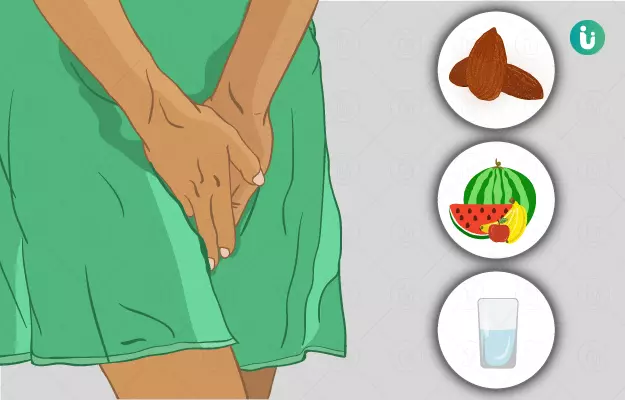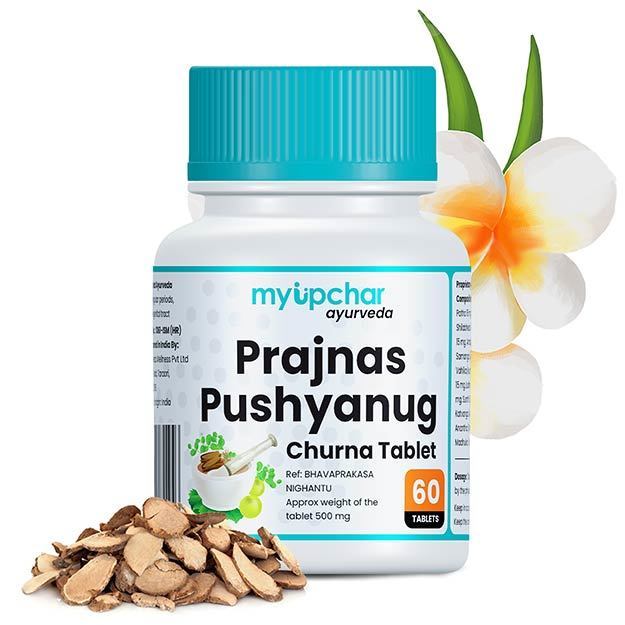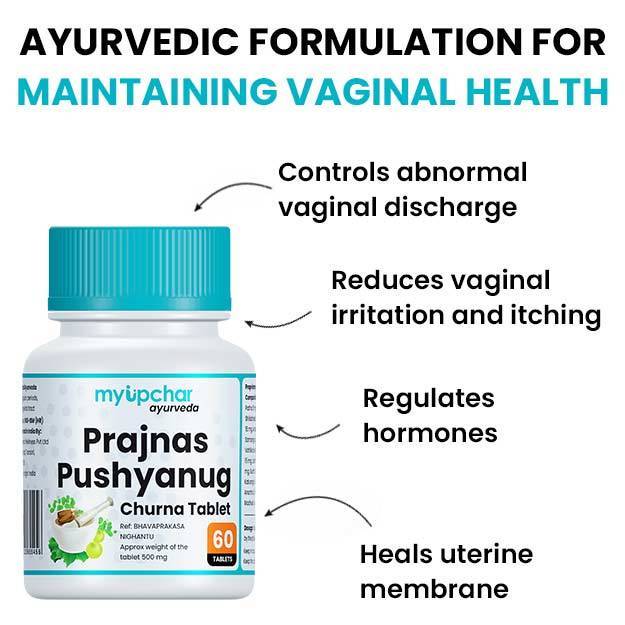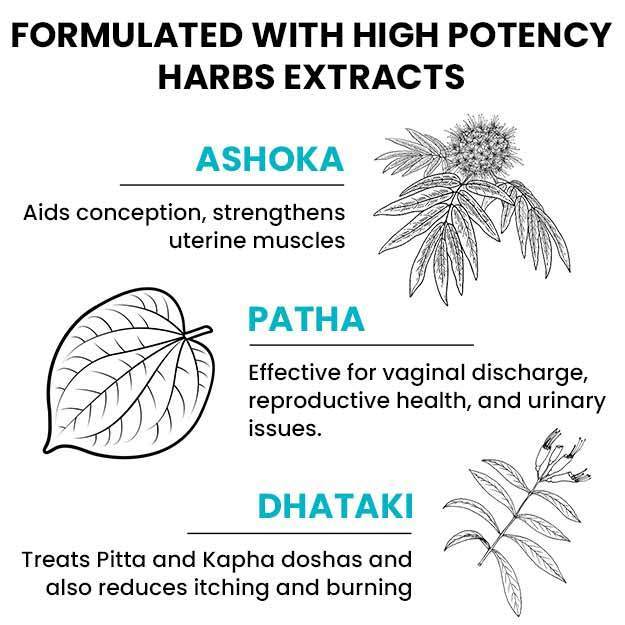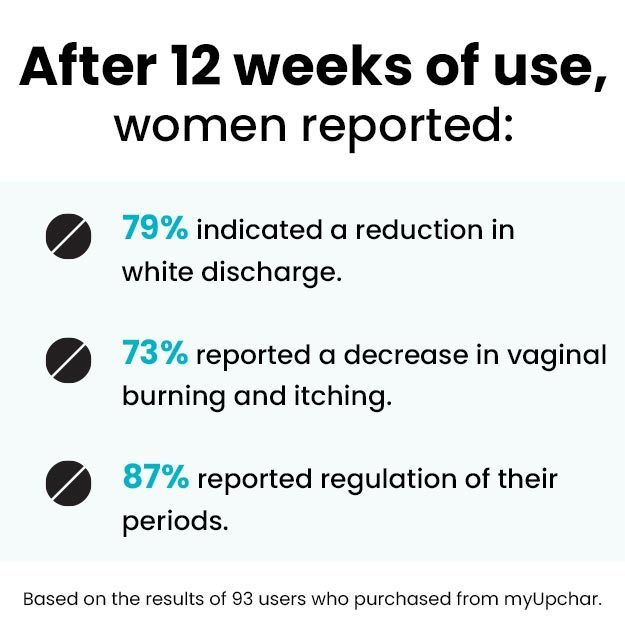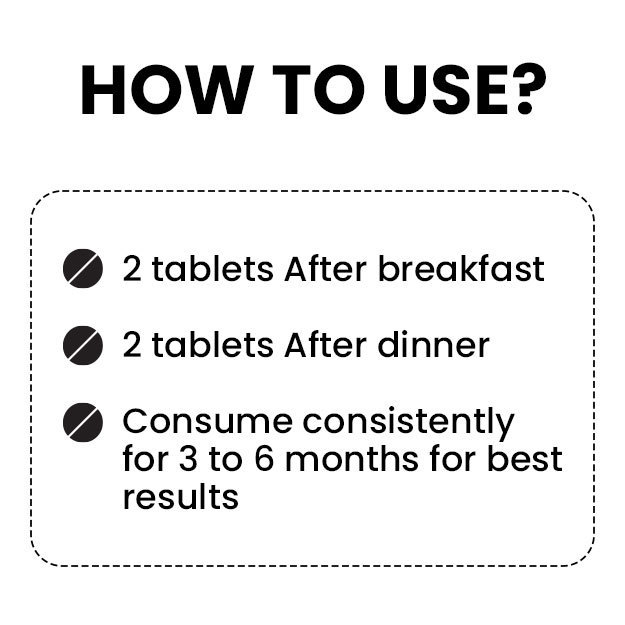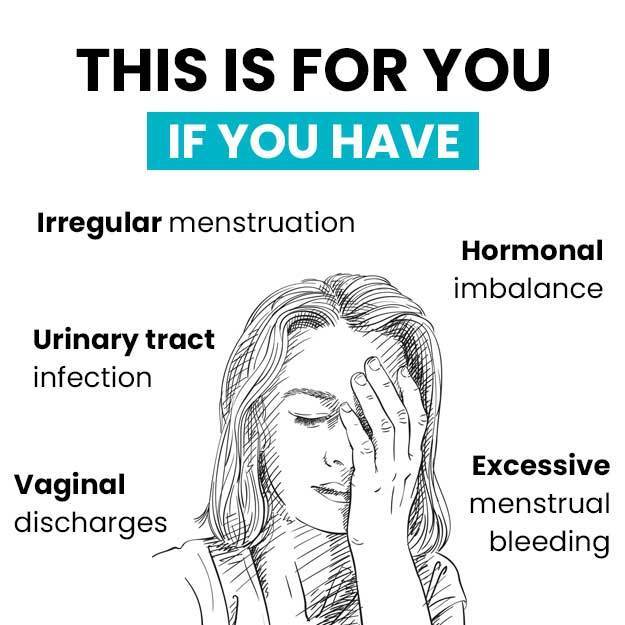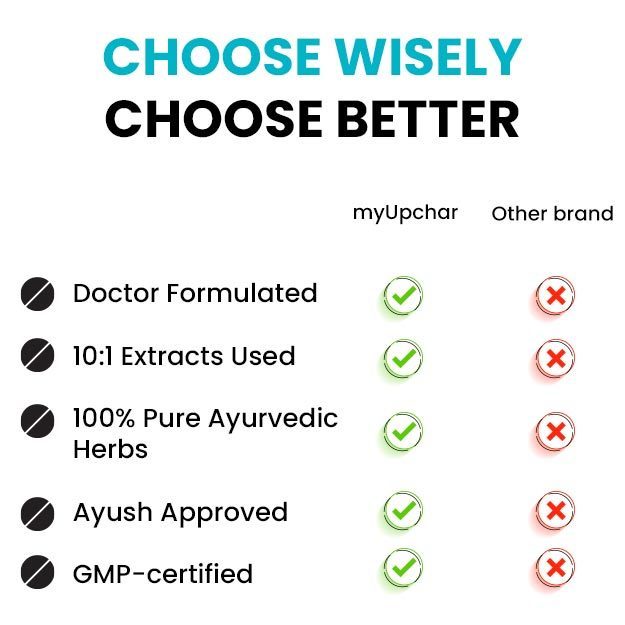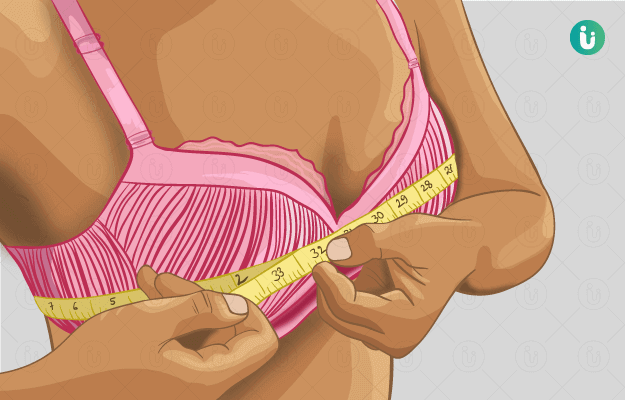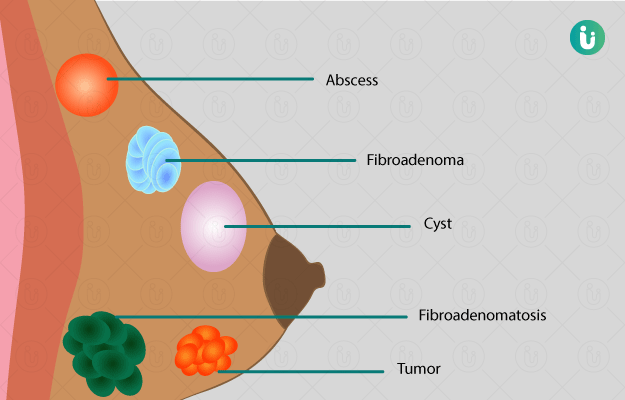Menstruation or periods refers to the periodic shedding of the uterine lining due to non-occurrence of conception or fertilisation. This is manifested in the form of bleeding from the vagina, which may or may not have additional symptoms.
During menstruation, women undergo a plethora of hormonal changes, some experiencing physical symptoms more severely than others. A few women experience extreme pain and discomfort as they bleed while others may have an irregular cycle. There are others who have quite a smooth cycle and may not have any symptoms at all, while there may be some who experience bloating or premenstrual mood changes.
What you eat during your menstrual cycle can be a major determining factor of your health during this phase. It has been suggested that dietary and lifestyle changes can be helpful in the management of menstrual symptoms and have a major impact on your overall well-being. Even if you don't have discomforting symptoms, it is important that you take care of your diet to ensure proper nutrition of your body and the prevention of any menstrual or health-related problems.
Dietary recommendations during menstruation will be discussed in this article, explaining the rationale for the inclusion of some foods while also describing the foods that must be avoided during menstruation.
What to eat during periods
While you are menstruating, it is important that you feed your body with the desirable amount of nutrition to replenish the body stores and to ensure good health. This may seem facile, but there are certain foods which have heightened relevance during menstruation and must be included in your diet. These foods include:
Balanced diet during menstruation
The importance of a balanced diet cannot be emphasised enough, and this is particularly true for the time you menstruate. Consuming a balanced diet will not only help in providing you with enough levels of energy while you menstruate but also will cater to reduce symptoms of dysmenorrhoea or pain during the cycle.
Several studies have described the need for taking a balanced diet during menstruation and it has repeatedly been associated with relief from dysmenorrhoea over time. The balanced diet discussed in these studies focuses on the inclusion of 55% carbohydrates, less than 30% of fats and 15-20% of proteins, which is slightly different from the diet you are expected to take on your non-menstrual days. Concerning carbohydrates, the inclusion of complex carbohydrates and fibres has been recommended. This is because complex carbohydrates and fibres are conducive to your digestive health and will facilitate the prevention of digestive complaints like constipation. This would help in preventing abdominal pain and discomfort due to these digestive issues.
Overall, the intake of this diet has been suggested to improve menstrual symptoms. A reduction in both the severity and intensity of pain was reported by the participants of this study. When compared with girls who were not given the described diet during the period of this study, better results were recorded in the group receiving diet after a duration of 3 months. This implies that while dietary changes are helpful in the management of menstrual symptoms and in the reduction of pain, it is imperative that you be patient since these relieving actions will be observable after a certain period of time.
Increased fluid intake during menstruation
What you eat during periods holds utmost significance during periods but sufficient intake of fluids is equally important. An increase in fluid intake is generally recommended during the days you are menstruating because water will assist in tissue repair and provide you with optimal levels of energy required for daily functioning. Another reason why you must drink more water during periods is to avoid bloating, which is commonly experienced during menstrual cycle.
Since fibres take longer to digest and spend more time within your intestines, an increased intake of fibres is associated with digestive symptoms like gas and bloating. Increasing the intake of water will facilitate the digestion of dietary fibres and avoid these symptoms. Further, water will help in relieving other digestive complaints and issues during periods like constipation. So, it is recommended to drink at least 8 to 10 glasses of water each day during your days of menstruation.
(Read more: How much water to drink daily)
Healthy fats during periods
Fats form an important part of the balanced diet and healthy sources of fats are highly recommended during periods while unhealthy fats are highly disdained. A low-fat diet is inversely related to the symptoms of pain during menstruation. It is, therefore, advisable to opt for natural and healthy sources of fats to keep the symptoms of dysmenorrhoea at bay.
Nuts during the menstrual cycle
It is often thought that nuts must not be consumed during menstruation since they are believed to be associated with heavier menstruation. But, in fact, the inclusion of nuts in moderation can be conducive to your health during periods as nuts are rich sources of fats. Studies have found that nuts when consumed in moderation, helped to reduce menstrual symptoms like pain and discomfort.
For this benefit, it has been suggested to eat a handful of nuts each day containing 1 to 2 almonds or walnuts and 8 to 10 pieces of nuts in total. Other than being a rich source of fats, nuts also possess ample amounts of digestive fibres, which could aid in the prevention of digestive issues like constipation or changes in bowel movements, which are common during the time of menstruation.
Fish oil during menstruation
Fish oil is a healthy source of fats, which is why it is commonly recommended during periods. Studies have found that the use of fish oil capsules is efficient in relieving menstrual pain due to the presence of omega 3 fatty acids. However, it is associated with mild side effects like nausea and abdominal pain, which states that you must not consume them without a physician's consult.
Another way of including omega 3 fatty acids in your diet is by consuming fish in moderate amounts. Although no direct evidence supporting the reduction of menstrual pain through the consumption of fish has been found, a protective and preventive role has been established.
Eggs during menstruation
Eggs are another healthy source of fats and proteins and contrary to the common belief, eggs can be a healthy inclusion in your diet during periods. Studies have found that the lack of eggs in the diet can lead to the symptoms of pain during menstruation, which is why it is important that you ensure its intake.
It is advisable to eat 1 to 2 eggs each day while you are menstruating. This will help to avoid excessive pain and discomfort during the cycle. However, it is not recommended to eat eggs excessively.
(Read more: Abdominal cramps treatment)
Vegetarian diet during periods
While it is fairly good to include healthy non-vegetarian sources in your diet during periods, scientists have found that vegetarian diets are actually better for your menstrual days. Vegetarian foods provide you with an ample amount of nutrition through its rich micronutrient intake, which will help regulate your menstrual flow. Thus, the intake of fresh fruits and vegetables is highly recommended.
Another reason to indulge in vegetarian diets is that these diets are lower in fats. Studies have associated low intake of dietary fats and vegetarian diets the with proper length of the menstrual cycle as well as a reduction in the intensity of pain during menstruation. Among fruits, it is reommended to increase the intake of bananas, since magnesium has been found to lower the intensity of pain. Vitamin B1 sources like nuts and cereals are also helpful. Along with it, adequate intake of milk and its products like butter and curd is recommended to ensure the inclusion of enough calcium in the diet.
(Read more: Vitamin B sources)
Vitamins and minerals during periods
Although increased physical activity and an overall healthy lifestyle are good for your menstrual health, athletic women also have a tendency of menstrual dysfunction. Amenorrhoea, delayed menarche (beginning of the menstrual cycle) and oligomenorrhoea (infrequent menstrual cycle) are common problems experienced by them.
Excessive drainage of energy and fatigue have been recognised to be the possible contributors to menstrual problems among them. Thus, it is highly important to take care of the nutritional needs of athletic women. Sufficient calorie intake along with an appropriate consumption of both macro and micronutrients must be ensured.
Micronutrients including vitamins and minerals are of specific relevance for athletic women. Optimal levels of these must be ensured as a part of a balanced diet to avoid nutritional deficiencies. Furthermore, an increased intake of fresh fruits (sources of vitamins and minerals) has been negatively associated with symptoms of dysmenorrhoea. The same is true for women who are on calorie restriction or are underweight. It is important to replenish their nutritional status to resolve menstrual problems.
What not to eat during periods
You must by now be aware of the kinds of food that you must eat during periods, but you may be wondering if there are any foods you must avoid. Although no specific diet needs to be followed during periods, there are certain foods which can cause worsening of the symptoms of pain during menstruation while others can contribute to bloating. This section will describe a list of all the foods that you must avoid during the menstrual cycle:
High-fat foods
While low-fat foods are listed as a healthy inclusion in the diet during menstruation, the converse is true for the intake of high-fat and unhealthy sources of fats like deep-fried food items and saturated fats and oils. It is a better idea to stir fry or lightly roast your food. High intake of polyunsaturated fatty acids, which are commonly used for frying is also associated with dysmenorrhoea.
Fast foods
Fast foods are loaded with trans fats and researchers have found that the intake of these foods can worsen the symptoms of dysmenorrhoea.
Repeated unhealthy snacking
Frequent snacking causes non-adherence to suggested dietary changes during menstruation. Women often begin taking frequent, unhealthy snacks during the premenstrual phase, which continues into menstruation. Such unhealthy practices must be refrained from to prevent pain and distress during menstruation.
Red meat
While the intake of healthy non-vegetarian foods like eggs and fish is highly recommended, it is suggested to reduce the intake of red meat sources like goat meat, pork, etc. during your periods. Processed meats like bacon and sausages must also be avoided to prevent the symptoms of dysmenorrhoea.
Beans and legumes
Beans and legumes are the richest sources of dietary fibres. An excessive intake of these foods can contribute to excessive gas and bloating, which can add on to your menstrual woes. While increasing fibres, it is always essential to increase your water intake.
(Read more: Home remedies for bloating)
Carbonated beverages
Although it is recommended to increase fluid intake during menstruation, it is important that you stay away from carbonated, fizzy beverages and replace these with water, in order to prevent dysmenorrhoea.
Excessive caffeine, sugar and alcohol
Excessive intake of coffee has also been associated with period pain. So, you must not exceed above 2 to 4 cups each day. You can instead opt for some natural teas like chamomile or green tea, which have a mild pain-relieving effect during periods.
To avoid dysmenorrhoea, the intake of sugary products and alcohol must also be regulated.
Unprescribed herbs
Although some herbs may be helpful in the management of pain and discomfort during the menstrual cycle, it is important that you talk to your doctor and not begin taking any herbs or supplements without your doctor’s consult.
References
- Yasemin Aydin Kartal and Elvan Yilmaz Akyuz. The effect of diet on primary dysmenorrhea in university students: A randomized controlled clinical trial. 2018 Nov-Dec; 34(6): 1478–1482. PMID: 30559807
- Michelle Proctor and Cynthia Farquhar. Diagnosis and management of dysmenorrhoea. 2006 May 13; 332(7550): 1134–1138. PMID: 16690671
- Balbi C, Musone R, Menditto A, Di Prisco L, Cassese E, D'Ajello M, Ambrosio D, Cardone1 A. Influence of menstrual factors and dietary habits on menstrual pain in adolescence age.. 2000 Aug;91(2):143-8. PMID: 10869786
- Tanya M. Halliday, Jeremy P. Loenneke and Brenda M. Davy. Dietary Intake, Body Composition, and Menstrual Cycle Changes during Competition Preparation and Recovery in a Drug-Free Figure Competitor: A Case Study. 2016 Nov; 8(11): 740. PMID: 27879627
- Jones DY, Judd JT, Taylor PR, Campbell WS, Nair PP. Influence of dietary fat on menstrual cycle and menses length.. 1987 Sep;41(5):341-5. PMID: 3692908
- Jones DY, Judd JT, Taylor PR, Campbell WS, Nair PP. Influence of dietary fat on menstrual cycle and menses length.. 1987 Sep;41(5):341-5. PMID: 3692908
- Manore MM. Dietary recommendations and athletic menstrual dysfunction.. 2002;32(14):887-901. PMID: 12427050
- Pattanittum P, Kunyanone N, Brown J, Sangkomkamhang US, Barnes J, Seyfoddin V, Marjoribanks J. Dietary supplements for dysmenorrhoea.. 2016 Mar 22;3:CD002124. PMID: 27000311
- Hansen SO, Knudsen UB. Endometriosis, dysmenorrhoea and diet.. 2013 Jul;169(2):162-71. PMID: 23642910
- Cross GB, Marley J, Miles H, Willson K. Changes in nutrient intake during the menstrual cycle of overweight women with premenstrual syndrome.. 2001 Apr;85(4):475-82. PMID: 11348562
- Nastaran Najafi, Hamidreza Khalkhali, Fatemeh Moghaddam Tabriz and Rasoul Zarrin. Major dietary patterns in relation to menstrual pain: a nested case control study. 2018; 18: 69. PMID: 29783972
- Soheila Mohamadirizi and Masoumeh Kordi. The relationship between food frequency and menstrual distress in high school females. 2015 Nov-Dec; 20(6): 689–693. PMID: 26793254
- Fjerbaek A, Knudsen UB. Endometriosis, dysmenorrhea and diet--what is the evidence?. 2007 Jun;132(2):140-7. Epub 2007 Jan 8. PMID: 17210218
- Bryant M, Truesdale KP, Dye L. Modest changes in dietary intake across the menstrual cycle: implications for food intake research.. 2006 Nov;96(5):888-94. PMID: 17092378
- InformedHealth.org [Internet]. Cologne, Germany: Institute for Quality and Efficiency in Health Care (IQWiG); 2006-. Period pain: Overview. 2008 Feb 22 [Updated 2016 Jul 1].


